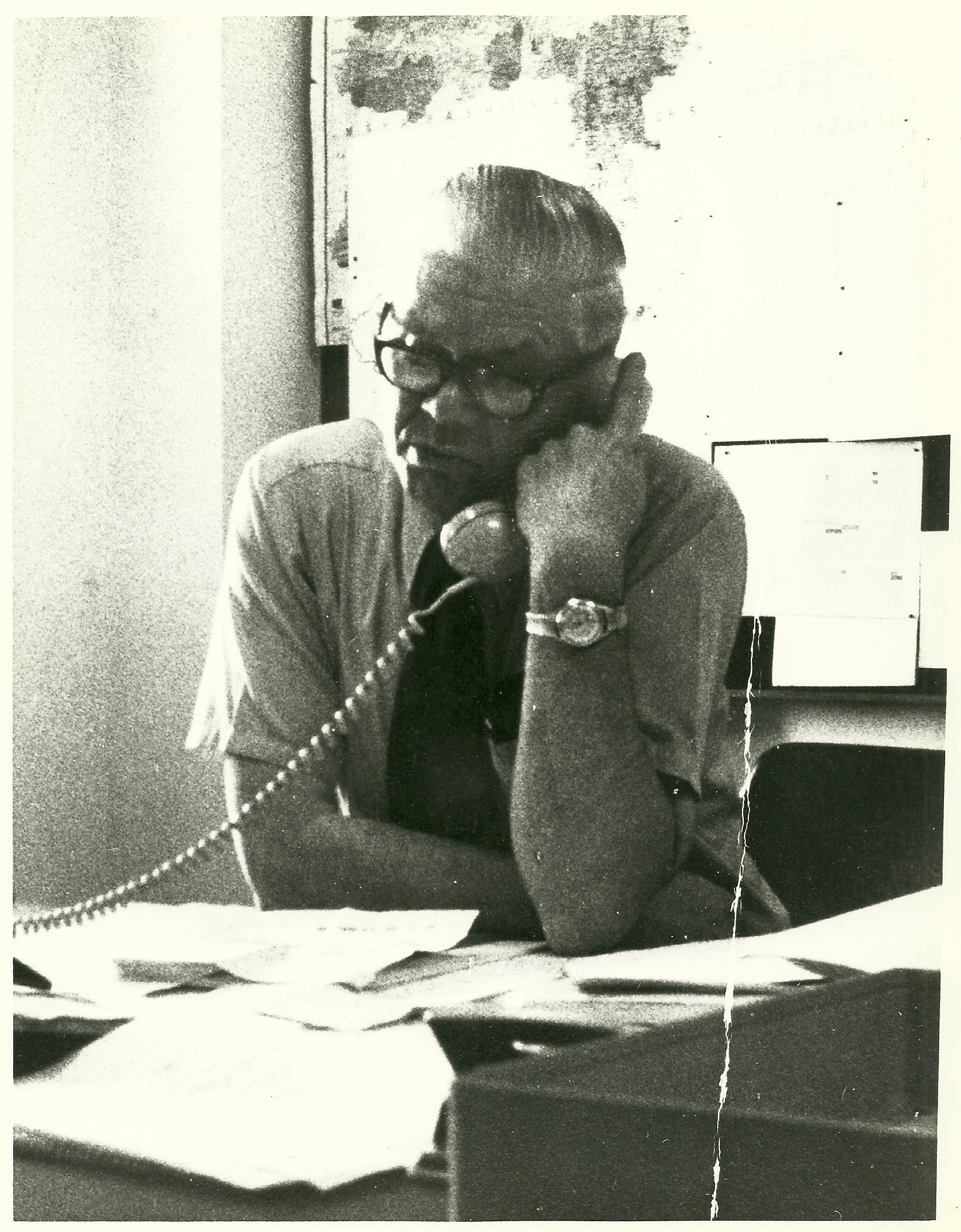Our History
The Watsonian Society is an organization of CDC/ATSDR Public Health Program Specialists, including Public Health Advisors and Analysts (PHAs) established in 1985. The Society is named in honor of William C. Watson, Jr., one of the first six Public Health Advisors hired in 1948. He ultimately became Deputy Director of CDC.

Bill Watson at His Desk, late 70s.
Bill Watson Biography
“Some things cannot be exaggerated. We can’t exaggerate the impact Bill had on our lives, or the health of the world.” Dr. William Foege
A native South Carolinian, Watson attended the Citadel before joining the U.S. Army during World War II. In 1944 he was captured in the Vosges Mountains of eastern France and endured six months of intense hunger and frostbite in a German POW camp.
After the war, Watson earned a degree in political science at the University of South Carolina, intending to become a lawyer. Instead, he was recruited by the U.S. Public Health Service to be an adviser in its campaign against venereal disease, a program that was later shifted to the CDC.
“Bill was cut out for work in public health,” said Dr. William Foege of Atlanta, a former director of the CDC. “He was good at interviewing patients, at organizing immunizations, at managing personnel — so good that he kept working his way to the top at the CDC,” retiring in 1984 as deputy director, the first and only person without a doctorate to reach that rank.
“Bill was an ingenious manager who took delight in figuring out ‘unsolvable’ problems,” Foege said. “I trusted his judgment more than my own.”
“Bill was the center of stability at the CDC,” said another retired CDC colleague, Elvin Hilyer of Dahlonega. “He also was a guardian of scientific integrity, protecting the CDC from political intrusion.”
Steve Sencer of Atlanta, son of the late former CDC director David Sencer, said, “When asked, my dad would say that Bill Watson was key to creating the esprit de corps that helped CDC achieve so much during the ’60s and ’70s.”
In 1973 Foege went to India to work in a program to eradicate smallpox in its last bastion on Earth. Foege said it became clear to him that the effort required a top-flight manager, and he cabled Sencer, then CDC director, to request one.
“Dave didn’t send just anyone. He sent his top assistant, Bill Watson, and in three months Bill got the program established that eventually wiped out smallpox.”
Mark Rosenberg of Atlanta, president and CEO of the Task Force for Global Health, said, “What stands out for me about Bill Watson is the remarkable courage it took for him and two CDC colleagues, Bill Foege and Carol Walters, to leave the world’s pre-eminent public health organization in 1984 to found a tiny venture that has become today’s Task Force for Global Health.
“With no organizational backing,” Rosenberg went on, “they were like three people on a raft in a sea of disease and disaster, and now the institution they started has helped to save 3,000 children’s lives a day and has an annual budget of $2 billion.” Watson spent 15 years with the Task Force.
Dr. Alan Hinman, a CDC colleague, credited Watson and Foege with making great progress with multinational immunization programs that had stalled in the early 1980s because of poor management and interagency bickering. After a veterinary drug was found to be effective in preventing river blindness in humans, Hinman said Foege’s vision and Watson’s managerial skills sped the Task Force’s effort to wipe out a disease that once plagued tropical Africa.
Excerpt from Obituary in The Atlanta Journal-Constitution
https://www.ajc.com/news/william-watson-national-global-public-health-giant/otBbdwhJrZjiO5k3Iu4d3K/
The content contained on this website or communication of employee association information through other government resources does not constitute or imply endorsement of the operations and activities of the association by CDC or the U.S. Department of Health and Human Services.